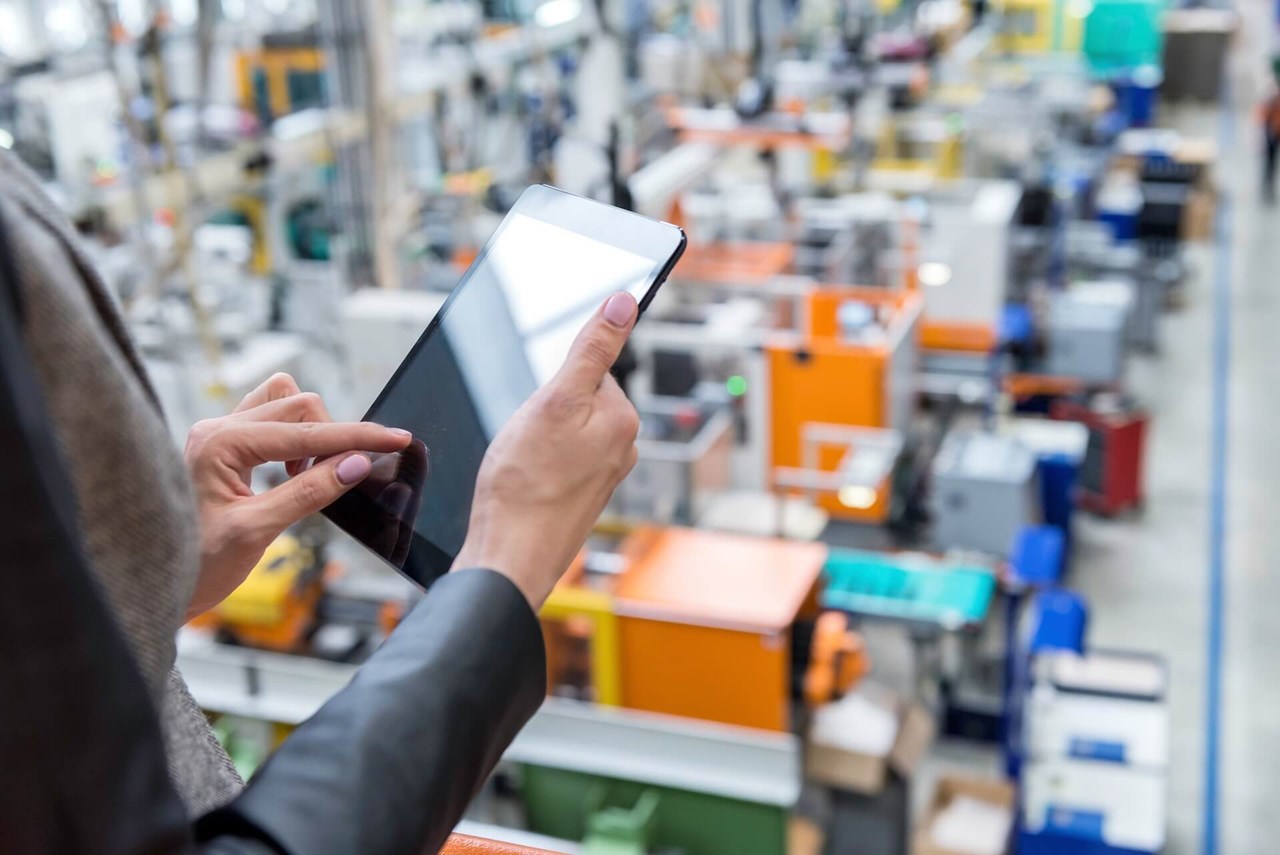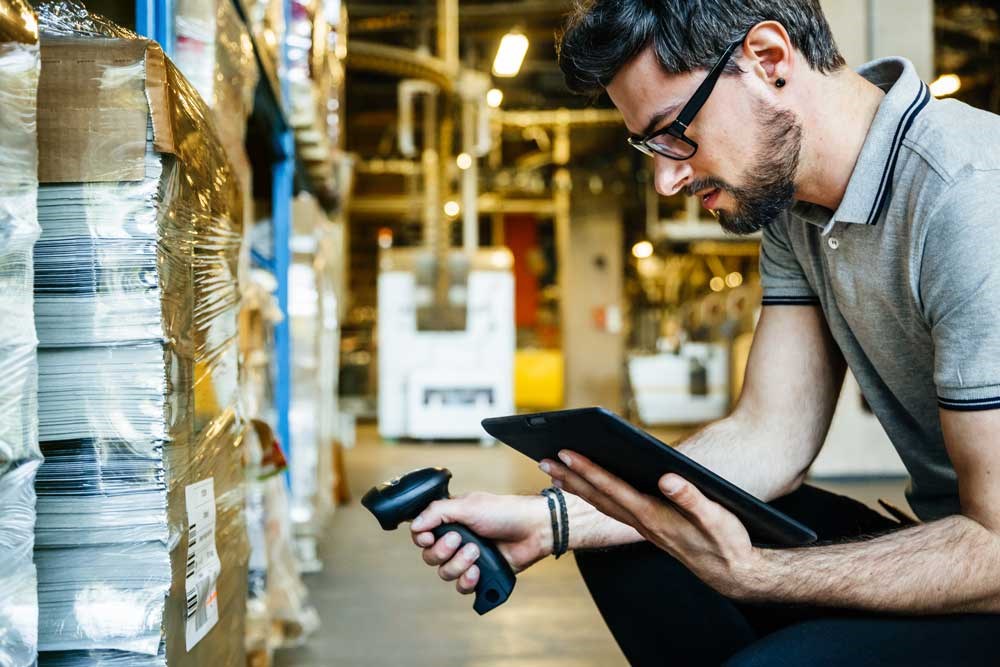Parts Pedigree, a newly formed startup of aerospace and technology experts, is taking blockchain technology from its proof-of-concept stage to the operations floor. We had a talk with Parts Pedigree’s CEO about their pilot project that could accelerate blockchain adoption in the supply chain.
»The future will likely be a place where every part has a trusted digital identity and historical record that is immediately accessible to those with the right credentials,« claims Deloitte and Parts Pedigree in a co-authored study titled “The case for a globally accessible, secure digital parts platform”.
RELATED ARTICLE:
Blockchain in the aviation industry - why it’s not just a buzzword.
The fact that the future is digital isn’t exactly a surprise to anyone, but the idea of it happening much sooner than expected might be.
In a time where digitisation, robotics and predictive maintenance is on everyone’s lips, Parts Pedigree have gone beyond the buzz and created a digital supply chain and asset management solution that, in part, uses blockchain for parts tracking.
What is a digital parts tracking platform?
Parts Pedigree potentially offers solutions to some of the so far unanswered questions that have become apparent within the aerospace industry since interest in the new technologies first picked up.
Namely, how does one create the right incentives to use shared solutions? And how can data ownership be treated and information secured in such a way that only those with appropriate access can see and use it?

To understand the revolutionary potential behind Parts Pedigree’s digital platform, one must first fully understand the inefficiencies associated with tracking aircraft parts today.
Currently, each collaborator in the supply chain - usually the OEM, the distributor, the airline and the MRO - merely has and stores their own record of their interaction with a part. And more often than not, this data is in physical paper form.
When a part is passed on to the next player in the supply chain, only strictly necessary paper documents are duplicated and shared with the rest of the supply chain.
All other information, though it could be highly valuable to the other partners in the supply chain, isn’t passed on and is effectively “lost” in the ecosystem.
Transparency above all
This approach results in major inefficiencies, poor quality and a decrease in the speed with which a part can move through the supply chain, leading to costly delays and unsatisfied customers.
In the grand scheme of the aviation supply chain, with thousands of parts changing hands daily, digitising the documentation process and the way parts are handled can have a profound effect, not only on the speed of a part’s journey through the supply chain, but also on strategic areas, such as forecasting, working capital, and human resources.
RELATED ARTICLE:
Five emerging technologies that will change the MRO industry.
A digital approach to parts tracking, like the one Parts Pedigree is pioneering, ultimately aims to create transparency in the supply chain - for everyone’s benefit.
The promise is “a globally accessible, digital platform of aircraft parts data that is created automatically via digitised operations, shared and accessible through ecosystem partners, and able to power new and innovative business processes and potentially entire business models.”
Blockchain is the means through which this is possible, allowing for a part’s record and, ideally, its entire lifecycle to be centrally stored with consolidated data from all the supply chain players that are involved with the part - from the very beginning of the manufacturing stage to the part’s final flight.

A closer look at Part Pedigree’s solution
At the time of writing, Deloitte, Parts Pedigree and the aircraft parts distributor, Pattonair, are pioneering a blockchain-fueled digital parts tracking platform.
Watch a visual presentation of how Parts Pedigree’s platform works.
Although the potential applications of blockchain are wide and diversified, the scope of the pilot is, at the moment, to explore the benefits of using blockchain on the shipping and receiving processes.
»Initially, we set out to solve a narrow and pragmatic problem in the industry today; the fact that it’s difficult to receive aerospace parts today. The reason is the enormous amount of paperwork that is attached to aircraft parts. Sometimes there are problems with this paperwork and in most of these circumstances, the best practice is to lock that part in a cage, a kind of quarantine area, so that they don’t end up being installed on an aircraft without proper documentation,« explains Tristan Whitehead, CEO of Parts Pedigree and a former reliability engineer with more than 25 years of experience in the industry.
READ MORE ABOUT:
As the industry becomes increasingly digital, the risk of cyber attacks increase. How should the industry deal with this new challenge?
Managing paperwork is one of the single largest factors slowing down parts in the supply chain. At best, it consumes valuable time and resources. At worst, it can be an extremely costly affair as parts are worth virtually nothing if the documentation is lost.
»Now, companies do different things with all that paperwork. Some physically store it for 10 years; others upload it to a file server such as DropBox. Both of these approaches make it very inefficient to find this documentation again when it’s required and that can be very costly in terms of inventory write-offs. Companies lose up to hundreds of millions of dollars, as they end up with a long list of parts they can’t sell due to the loss of documentation. Aircraft parts can be extremely valuable, but if a company can’t provide the necessary documentation, the part is basically worth nothing,« Whitehead explains.
Results so far
According to data from Parts Pedigree, less than three percent of suppliers today can produce a digital Advanced Shipping Notice (ASN). This can significantly slow down the receiving process.
Currently, manual entry into the ERP system is required for each inbound part. Already a slow and time-consuming process, if the inbound part lacks quality documentation as well, the part could be held up even further.
This is achieved because the ERP receiving transaction is fully automated and supplier documents can be viewed before the part arrives – allowing any paperwork issues to be addressed in advance and increasing first pass yield.
»We have created a place where parts store their memory. We’re looking at the supply chain through the eyes of the part, instead of through the eyes of the organization, and that’s where we differentiate ourselves,« notes Tristan Whitehead.
READ MORE ABOUT:
How the Internet of Things will impact the aviation industry and bring new levels of efficiency.
»That history, we believe, being immutable and trustworthy due to the nature of blockchain technology, is going to be very interesting to a lot of people in the supply chain, such as planning teams, distributors, suppliers, OEMs and even the engineers that look at how products perform in the market. There's really a whole long list of things you can do with the information if you had it,« says Tristan Whitehead. He adds:
»Imagine, for instance, an engine OEM looking at a part they’re about to install on an engine. They need to know and trust that this part is compliant all the way back to the raw material. You should be able to trace that, and that’s why we created the digital platform; to solve a problem that’s very pervasive across the industry - the inefficient process of shipping and receiving parts.«
Why blockchain?
According to Tristan Whitehead, the buzz about blockchain technology is often blown a bit out of proportion, at least if one considers its level of maturity at the moment.
It is still a technology in the early phase of adoption, thus Tristan Whitehead is a little more careful with his assessment of blockchain networks than other supporters.
»We don’t think blockchain can solve everything. For example, there are some who suggest that it will be the database of the future but it’s not as efficient at storing enormous amounts of highly structured enterprise data like the latest in-memory, column-based solutions from SAP and others,« Whitehead explains and proceeds:
»It does do a tremendous job at creating immutable information. We want to start there because it's fairly simple for the industry to understand and also very important in such a regulative environment as the aviation industry is,« he says, adding that Parts Pedigree was created with the usability of the application in focus, not blockchain technology.
»The platform uses blockchain technology to absolutely certify and guarantee that the piece of information you’re looking at is the true original of that document and that this information never can be tampered with or falsified«, says Whitehead.
In other words, the platform utilizes blockchain technology solely to create trust in the supply chain ecosystem.
FIND OUT MORE:
Can you predict seemingly unknown events in maintenance? PHM-solutions are on the rise and the technology’s promise is great.
Blockchains are an ideal enabler for this cause, as it makes it possible to mathematically prove the origin and authenticity of a document. It’s virtually impossible to change or hack a document stored on the blockchain, be it from the inside or outside.
Just the beginning
Going forward, Tristan Whitehead points to a number of applications and potential 3rd-party integrations that could be added on top of the platform, since it’s an open API.
»We’ve decided to make the platform open API. This means you can develop applications on top of the existing solution. If you have the part data and part information about where that part is moving, you can, for instance, build an import-export compliance solution on top of it that can adjudicate compliance every time a part leaves. Or you can do some type of inventory forecasting because you know the true lead times of all the suppliers,« Whitehead explains.
This could create a marketplace for cloud-based subscription fee applications that the entire industry can tap into, ultimately allowing a large number of small players in the supply chain to gain access to the benefits that this kind of technology offers.
In regards to the future of blockchain, Whitehead believes there are a number of areas where the technology could prove useful in the longer term.
»Currently, the average airline CFO would be wary about using some kind of cryptocurrency to do financial settlements, but in the longer term - perhaps in 10 years or so - this could very well be possible. Big companies receive thousands of invoices each month, each in different formats, and each requiring manual handling. It’s a slow and burdensome process at the moment. A cryptocurrency or token of some kind could potentially resolve these inefficiencies and automate the process,« Whitehead predicts.
MUST READ:
The biggest MRO industry disruptions.